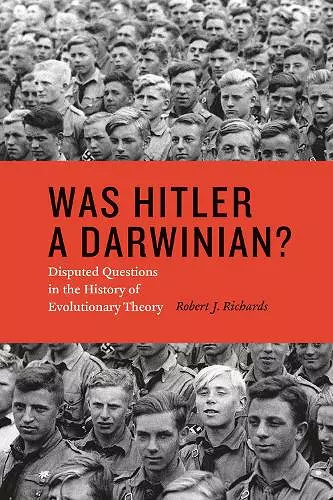Was Hitler a Darwinian?
Disputed Questions in the History of Evolutionary Theory
Format:Paperback
Publisher:The University of Chicago Press
Published:26th Nov '13
Currently unavailable, and unfortunately no date known when it will be back

In tracing the history of Darwin's accomplishment and the trajectory of evolutionary theory during the late nineteenth and early twentieth centuries, most scholars agree that Darwin introduced blind mechanism into biology, thus banishing moral values from the understanding of nature. According to the standard interpretation, the principle of survival of the fittest has rendered human behavior, including moral behavior, ultimately selfish. Few doubt that Darwinian theory, especially as construed by the master's German disciple, Ernst Haeckel, inspired Hitler and led to Nazi atrocities. In this collection of essays, Robert J. Richards argues that this orthodox view is wrongheaded. A close historical examination reveals that Darwin, in more traditional fashion, constructed nature with a moral spine and provided it with a goal: man as a moral creature. The book takes up many topics-including the character of Darwin's chief principles of natural selection and divergence, his dispute with Alfred Russel Wallace over man's big brain, the role of language in human development, his relationship to Herbert Spencer, how much his views had in common with Haeckel's, and the general problem of progress in evolution. Moreover, Richards takes a forceful stand on the timely issue of whether Darwin is to blame for Hitler's atrocities. Was Hitler a Darwinian? is intellectual history at its boldest.
"These essays display the impressive range of Robert J. Richards's abilities as an intellectual historian and historian of science, as they explore the disparate sources of Darwinian thought in romanticism, theology, ethics, aesthetics, and linguistics." (Sander Gliboff, Indiana University)"
ISBN: 9780226058931
Dimensions: 23mm x 16mm x 2mm
Weight: 482g
280 pages